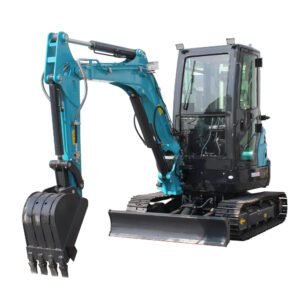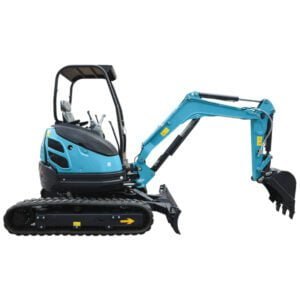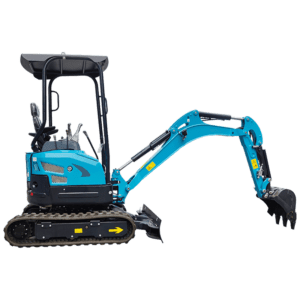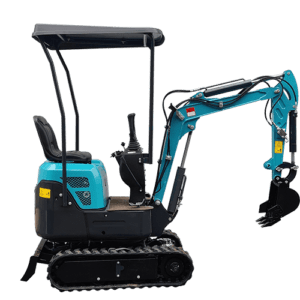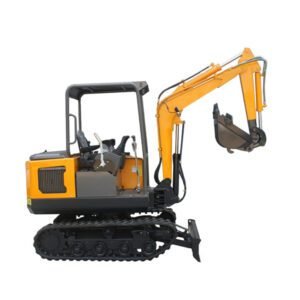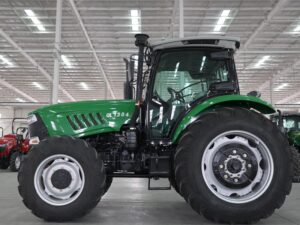E-mail: info@qilumachinery. com Whatsapp: 8618266768780
Como selecionar a melhor caçamba para miniescavadeira
Bem-vindo ao meu blog!
Antes de mergulharmos no conteúdo, adoraria que você se juntasse a mim nas minhas plataformas de mídia social, onde compartilho mais insights, interajo com a comunidade e posto atualizações. Veja como você pode se conectar comigo:
Facebook: https://www.facebook.com/profile.php?id=100072217509763
LinkedIn: https://www.linkedin.com/company/74949059/admin/dashboard/
YouTube:www.youtube.com/@tractormanufacturer-lc5qz,www.youtube.com/@excavatormanufacturers-sn9hk
TikTok: www.tiktok.com/@tractormanufacturer, www.tiktok.com/@excavatormanufacturers
Agora, vamos começar nossa jornada juntos. Espero que você ache o conteúdo aqui perspicaz, envolvente e valioso.
Introdução
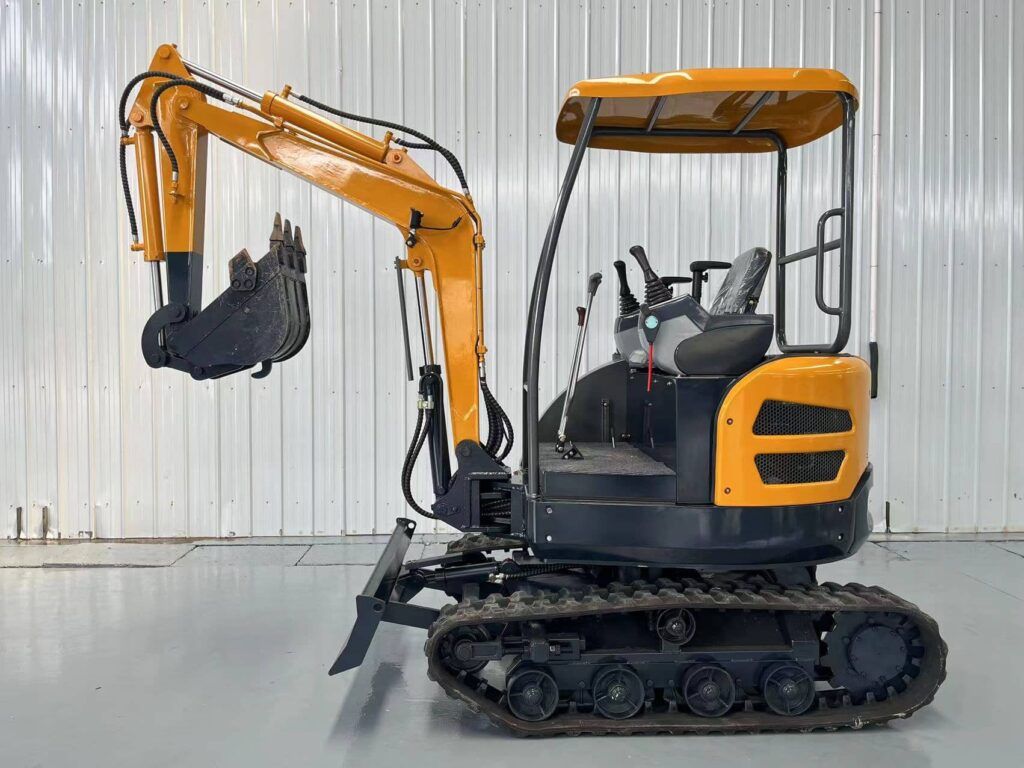
Quando se trata de maximizar a eficiência e a versatilidade da sua miniescavadeira, escolher a caçamba certa é crucial. Não importa se você está cavando, nivelando ou limpando, a caçamba que você selecionar pode impactar significativamente sua produtividade no local de trabalho. Com várias opções disponíveis, encontrar a melhor caçamba para uma miniescavadeira pode ser assustador. Este guia visa simplificar o processo, ajudando você a tomar uma decisão informada que atenda às suas necessidades específicas.
Compreendendo os diferentes tipos de baldes para Miniescavadeiras
Baldes de uso geral
As caçambas de uso geral são o tipo mais comum de caçamba para miniescavadeiras. Essas caçambas são versáteis e podem lidar com uma variedade de tarefas, como escavação, carregamento e movimentação de materiais. Elas estão disponíveis em diferentes tamanhos, permitindo que os operadores escolham o tamanho apropriado com base no escopo do trabalho.
Características principais:
- Versátil para múltiplas tarefas
- Disponível em vários tamanhos
- Construção durável e robusta
Caçambas para serviços pesados
As caçambas para serviços pesados são projetadas para tarefas mais exigentes que envolvem o manuseio de materiais abrasivos, como pedras, cascalho e solo duro. Essas caçambas são construídas com estruturas reforçadas para suportar os rigores do trabalho pesado.
Características principais:
- Construção reforçada
- Adequado para materiais resistentes e abrasivos
- Vida útil mais longa em comparação com baldes de uso geral
Baldes de classificação
As caçambas de nivelamento são ideais para tarefas que exigem nivelamento e nivelamento precisos. Elas têm um perfil mais largo e plano, tornando-as perfeitas para trabalhos de acabamento, criação de taludes e paisagismo.
Características principais:
- Perfil largo e plano para melhor nivelamento
- Ideal para acabamento e paisagismo
- Proporciona um acabamento suave
Caçambas para valas
As caçambas para escavação de valas são projetadas especificamente para a abertura de valas estreitas e profundas. Elas são mais estreitas do que as caçambas de uso geral, permitindo a criação de valas limpas e precisas para serviços públicos, tubulações e fundações.
Características principais:
- Design estreito para abertura precisa de valas
- Ideal para serviços públicos e trabalhos de tubulação
- Capacidades de alta penetração
Baldes especiais
Para aplicações específicas, estão disponíveis caçambas especiais. Estas incluem caçambas basculantes, caçambas para rochas e caçambas para limpeza. As caçambas basculantes, por exemplo, podem ser inclinadas sobre um pivô, permitindo escavações e nivelamentos em ângulo, o que é particularmente útil em áreas inclinadas.
Características principais:
- Projetado para tarefas específicas
- Inclui baldes de inclinação, balanço e limpeza
- Aumenta a versatilidade em trabalhos especializados
Fatores a considerar ao escolher o melhor balde para Miniescavadeira
Requisitos do trabalho
O primeiro passo para selecionar a caçamba certa para sua miniescavadeira é avaliar os requisitos do trabalho. Considere o tipo de trabalho que você realizará, os materiais que manuseará e as condições do local. Por exemplo, uma caçamba de uso geral pode ser suficiente para escavações leves, enquanto uma caçamba para serviços pesados seria mais adequada para terrenos rochosos.
Tamanho e capacidade do balde
Escolher o tamanho e a capacidade corretos da caçamba é essencial para maximizar a eficiência. Uma caçamba muito pequena pode aumentar o número de ciclos necessários para concluir uma tarefa, enquanto uma caçamba muito grande pode sobrecarregar sua miniescavadeira e reduzir sua manobrabilidade.
| Tamanho do balde | Capacidade típica (jardas cúbicas) | Aplicações ideais |
|---|---|---|
| 12 polegadas | 0.10 – 0.15 | Valas estreitas, trabalhos de utilidade pública |
| 18 polegadas | 0.20 – 0.25 | Escavação e nivelamento de uso geral |
| 24 polegadas | 0.30 – 0.35 | Valas maiores, material pesado |
| 36 polegadas | 0.40 – 0.50 | Escavação em larga escala, carregamento |
Durabilidade do material e design do balde
O material com o qual a caçamba é construída desempenha um papel significativo em sua durabilidade. Aço de alta resistência é comumente usado em caçambas para miniescavadeiras devido à sua capacidade de suportar cargas pesadas e resistir ao desgaste. Além disso, o design da caçamba, incluindo o formato e o reforço da lâmina de corte, determina sua eficácia em diversas aplicações.
Compatibilidade com Mini Escavadeira
Certifique-se de que a caçamba escolhida seja compatível com o modelo da sua miniescavadeira. Isso envolve verificar o sistema de fixação, os requisitos hidráulicos e as limitações de peso. Usar uma caçamba incompatível pode não apenas reduzir a eficiência, mas também representar riscos à segurança.
Considerações sobre custos e orçamento
O orçamento é sempre um fator a ser considerado na escolha do equipamento. Embora possa ser tentador optar pela caçamba mais barata, é importante considerar os custos a longo prazo associados à durabilidade, manutenção e produtividade. Investir em uma caçamba de melhor qualidade pode economizar dinheiro a longo prazo, reduzindo o tempo de inatividade e os custos de reposição.
Dicas de manutenção para você Miniescavadeira Balde
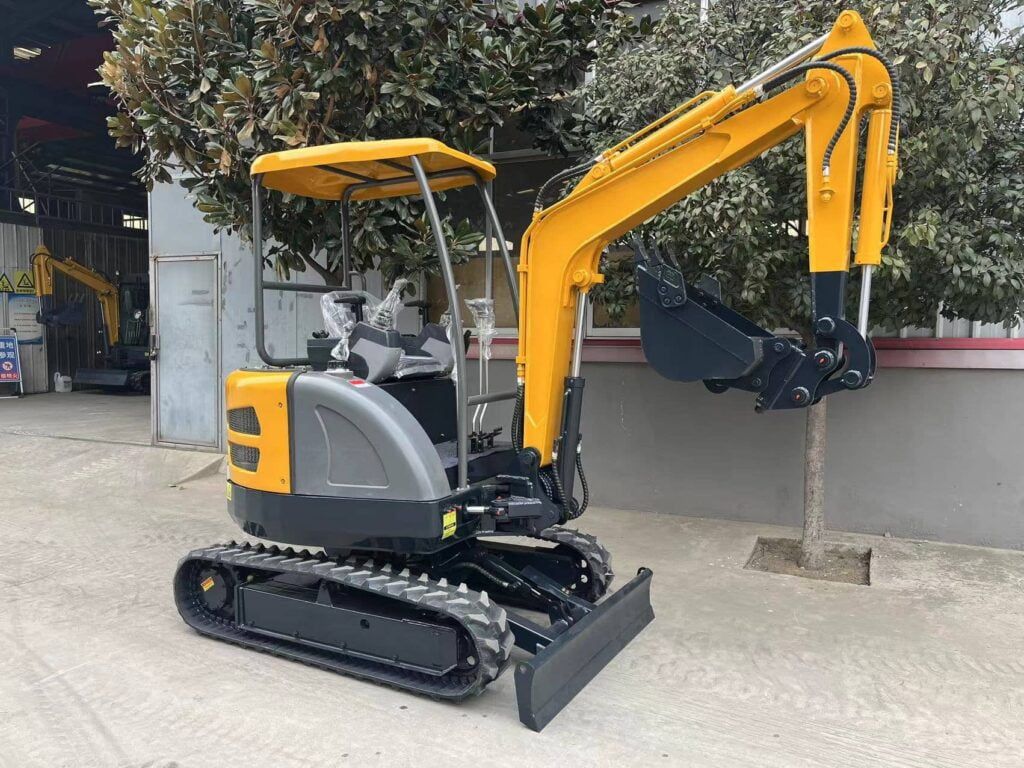
Inspeção e limpeza regulares
Inspecione seu balde regularmente em busca de sinais de desgaste, como rachaduras, amassados e bordas desgastadas. Limpar o balde após cada uso também é essencial para evitar o acúmulo de material, que pode levar à corrosão e à redução do desempenho.
Lubrificação de peças móveis
Certifique-se de que todas as peças móveis, como dobradiças e pinos, estejam adequadamente lubrificadas. Isso reduz o atrito e previne o desgaste, prolongando a vida útil da caçamba e garantindo um funcionamento suave.
Substituição de componentes desgastados
Com o tempo, componentes como a lâmina de corte e os dentes se desgastam. Substitua-os regularmente para manter a eficiência da caçamba e evitar reparos dispendiosos. Usar peças de reposição de alta qualidade também melhora o desempenho da caçamba.
Armazenamento adequado
Quando o balde não estiver em uso, guarde-o em um local seco e coberto para protegê-lo das intempéries. Isso evita ferrugem e prolonga sua vida útil, especialmente se for feito de aço de alta resistência.
Conclusão
Selecionar a melhor caçamba para sua miniescavadeira envolve considerar cuidadosamente diversos fatores, incluindo o tipo de trabalho, o tamanho da caçamba, a durabilidade do material e o orçamento. Ao compreender os diferentes tipos de caçamba disponíveis e combiná-los com as necessidades do seu trabalho, você pode melhorar significativamente o desempenho e a eficiência da sua miniescavadeira.
Lembre-se: a caçamba correta não só melhora a produtividade, como também garante a longevidade do seu equipamento. A manutenção regular, como inspeção e armazenamento adequado, prolongará ainda mais a vida útil da sua caçamba, proporcionando um serviço confiável por muitos anos.
Perguntas frequentes
Qual é o balde mais versátil para um miniescavadeira?
A caçamba de uso geral é considerada a mais versátil, pois pode realizar uma variedade de tarefas, incluindo escavação, carregamento e movimentação de materiais. É adequada para diferentes locais de trabalho e materiais, tornando-se uma escolha popular para muitos operadores.
Como sei qual tamanho de balde escolher?
O tamanho da caçamba deve ser baseado nas tarefas específicas que você precisa realizar. Caçambas menores são ideais para trabalhos de precisão, como abertura de valas, enquanto caçambas maiores são mais indicadas para movimentação de materiais a granel. Consulte as instruções do fabricante para garantir que o tamanho da caçamba seja compatível com a sua miniescavadeira.
Com que frequência devo substituir o fio de corte do meu balde?
A frequência de substituição do fio de corte depende do tipo de material com o qual você está trabalhando e da frequência de uso da caçamba. Como regra geral, inspecione o fio de corte regularmente e substitua-o quando apresentar desgaste significativo para manter a eficiência da caçamba.
Posso usar um balde maior no meu miniescavadeira?
Embora seja possível usar uma caçamba maior, é essencial garantir que ela esteja dentro dos limites de peso e tamanho recomendados pelo fabricante da miniescavadeira. Usar uma caçamba grande demais pode sobrecarregar a máquina, reduzir sua manobrabilidade e aumentar o desgaste.
Quais materiais são melhores para caçambas de serviço pesado?
Caçambas para serviços pesados são normalmente feitas de aço de alta resistência para suportar os rigores de ambientes rigorosos. Algumas caçambas também podem apresentar reforço adicional ou revestimentos resistentes ao desgaste para maior durabilidade.
Sobre nós
Shandong Qilu Industrial Co., Ltd. é um fabricante e exportador profissional que integra o desenvolvimento e produção de escavadeiras, carregadeiras e tratores. Nós fornecemos o melhor serviço, absolutamente.
Postagens recentes
Vídeo de demonstração
-1.png)
Fale Conosco Hoje!
Alguma dúvida, orçamento ou consulta? Clique no botão para enviar mensagem.
A Qilu Industrial estará sempre aqui para ajudar.

